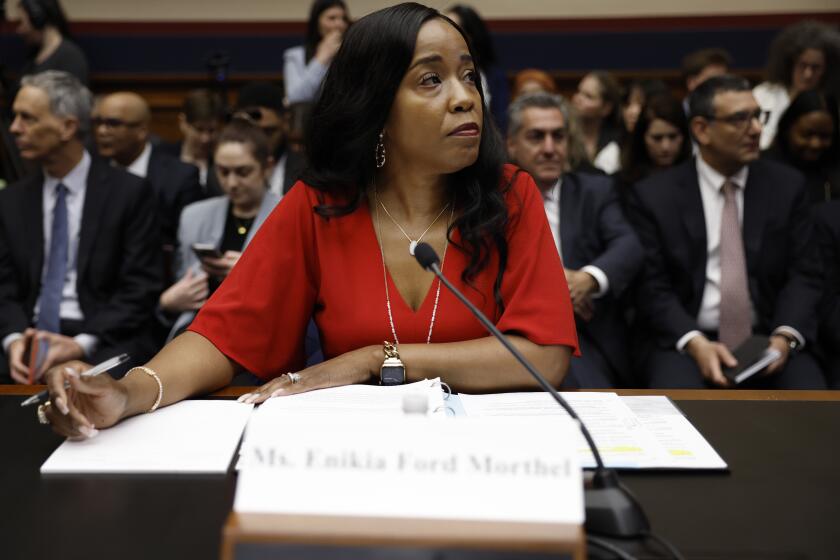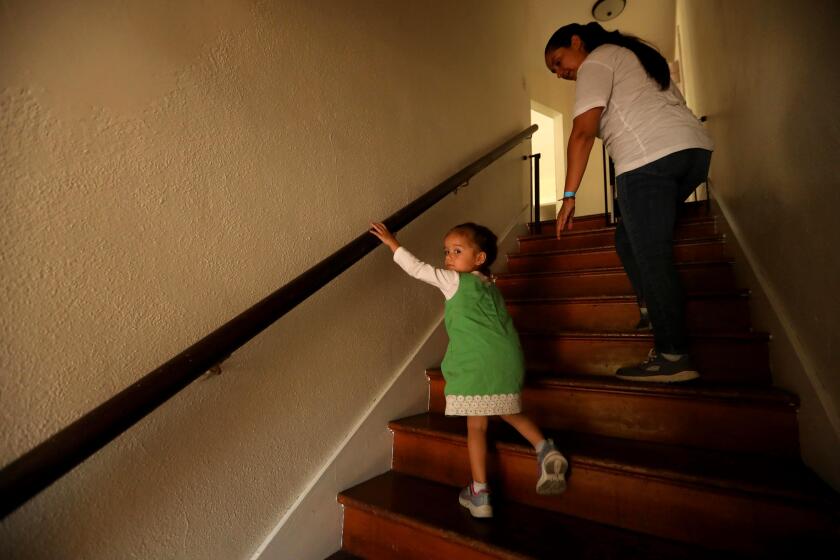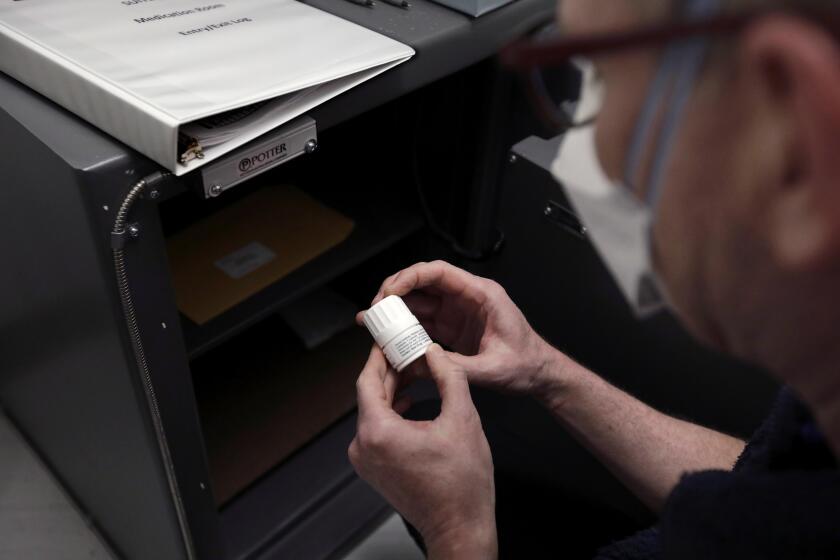Legal Mistake Could Hinder McMartin Case
An error in new state legislation could result in the dismissal of many of the charges against the seven defendants in the McMartin Pre-School molestation case and similarly affect thousands of child molestation cases throughout California, The Times has learned.
The mistake, which grew out of the Legislature’s effort to standardize sections of the Penal Code last year, shortened the statute of limitations for acts of child molestation committed before 1982.
As a result of the Penal Code revisions, which became effective Jan. 1, the older counts in the McMartin case could be subject to dismissal, and other cases may be dismissed or never filed, according to attorneys, judges and other legal experts contacted by The Times.
The error came to light 10 days ago when Los Angeles Municipal Judge Edward L. Davenport dismissed the case against a 27-year-old man charged with molesting his 10-year-old sister-in-law five years ago.
The man’s attorney argued that, under the new law, the statute of limitations--the time period during which a person must be charged with a crime--is three years, not six, for child molestation committed before 1982. The judge agreed, dismissing the charges.
Corrective Legislation
Questions about the language and intent of the revisions immediately began to circulate among lawyers and judges involved in child sexual abuse cases.
The Legislature now is rushing to correct its mistake with an urgency measure prepared by the staff of the Assembly Committee on Public Safety.
The measure, which is intended to clarify the Legislature’s intent in making the revisions, is scheduled to be introduced today or Wednesday, probably by Assemblyman Byron D. Sher (D-Palo Alto), who sponsored the original changes. Proponents say they hope that committee hearings can begin Monday.
Meanwhile, in the McMartin case, now in its eighth month of preliminary hearing, defense attorney Bradley Brunon said late Monday that he will file a motion today to dismiss 10 of the 13 charges against school founder Virginia McMartin, 77, on grounds that they are beyond the statute of limitations.
“We’d prefer to win on the merits of the case, but we’ll settle for a technicality,” he said.
Deputy Public Defender Forrest Latiner, who represents McMartin’s granddaughter, Peggy Ann Buckey, 29, said Monday he is considering a similar motion.
‘In No Hurry’
“But I’m in no hurry,” he said. “I don’t think the barn door can be closed when the horse is gone.”
He was referring to the constitutional prohibition against ex post facto laws, under which a person can be punished for an act that was not a crime when it was committed. More than half the charges against the other five preschool teachers who are defendants in the McMartin case appear to be unaffected by the Legislature’s error, which was termed “a technical problem” by analysts in Sacramento.
The issue turns on technical questions as yet undecided by a court, questions that had legal experts scratching their heads Monday and frequently changing their minds about the statute’s meaning and impact.
The confusion centers on the relationship between the statute of limitations and maximum sentencing sections of the Penal Code, both of which have been changed several times during the period covered by the McMartin case.
Penal Code Sections 800 and 801 were reworded last year to provide that felonies carrying maximum sentences of less than eight years must be prosecuted within three years, while those carrying sentences of eight or more years have a six-year time limit.
Sentence Increased
The maximum sentence for child molestation has been increased several times during the past few years, most recently in 1982, when it was changed from seven to eight years.
Legal experts say it is these overlapping changes that create the dilemma that the Legislature and prosecutors now find themselves facing.
The Penal Code revisions raise additional questions about the legal validity of child molestation cases that are still under investigation or in the early stages of prosecution.
The shortened statute of limitations is not applicable to cases where prosecution had already begun by Jan. 1, but the statute says that prosecution does not begin until there is an indictment, a case is certified to the Superior Court, an arrest or bench warrant is issued or a complaint is filed in the court that has trial jurisdiction.
A preliminary hearing does not, in itself, count as “prosecution begun,” according to legal experts.
In the McMartin case, this appears to mean, according to some attorneys and judges queried by The Times, that only those charges listed in the 115-count indictment handed down in March, 1984, can span the previous six years to mid-1978. (Indictments against Virginia McMartin and Peggy Ann Buckey were dismissed.)
Later Charges
Many of the 93 charges added later, including alleged acts before 1982, could be dismissed, leaving the prosecution with the more recent allegations and dependent on the testimony of the youngest of the alleged child victims, sources close to the case said.
(A recent California Supreme Court decision could prevent the older children from testifying as corroborating witnesses, legal experts said).
The prosecutors in the McMartin case did not return several calls from a reporter Monday, but had said earlier they were concerned about the impact of the Penal Code changes on their case.
Spokesmen for the Los Angeles County district attorney’s office said only the McMartin prosecutors could provide the exact number of counts subject to dismissal should the court adopt the defense position.
“The Legislature certainly didn’t mean to decriminalize child molestation,” said Phil Wynn, director of the district attorney’s bureau of special operations.
“Our opinion is that it (the revised language) is of no consequence. We are fully confident that the statute operative on Jan 1., which links crimes of eight-year sentences with a six-year statute of limitations encompasses McMartin. This whole thing has been blown out of proportion.”
Law Professor
According to one noted expert, Loyola School of Law professor Gerald Uelmen, “You can’t apply the new section retroactively to crimes that had a different penalty at some previous time.
“The way I read the legislative history of these changes, any crime with an eight-year penalty on Jan. 1 has a six-year statute of limitations, regardless of when the crime was committed.”
Uelmen also is past president of California Attorneys for Criminal Justice and a consultant to the Law Revision Commission that recommended the Penal Code changes.
Uelmen said he does not believe corrective legislation is necessary.
However, Earl Cantos, senior Republican consultant for the Assembly Committee on Public Safety, said the law as written is “ambiguous and easily confused. That’s why we want clarification.”
More to Read
Start your day right
Sign up for Essential California for news, features and recommendations from the L.A. Times and beyond in your inbox six days a week.
You may occasionally receive promotional content from the Los Angeles Times.






